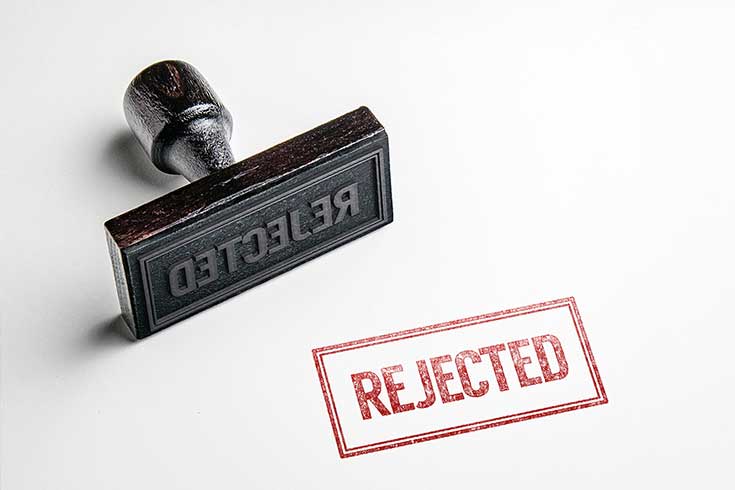How to Identify Contributors on Wikipedia and the Average Cost of Legal Fees

Wikipedia is an internet encyclopedia operated by the Wikimedia Foundation. It is available in various languages worldwide, and anyone who can access the site can write or edit articles. Therefore, there is a possibility that articles that could be considered defamatory may be posted.
If a defamatory article has been posted on Wikipedia, can the author of the article be identified? Also, how much would the legal fees be in such a case? In this article, we will explain how to identify Wikipedia contributors and the average cost of legal fees.
What is Wikipedia?
Wikipedia is characterized by its significant difference from traditional encyclopedias edited by experts, in that it allows general internet users to edit its content. Another notable feature is that the majority of people who perform editing and operational management, excluding staff of the Wikimedia Foundation, are volunteers.
In Wikipedia, you can create your own account and write or edit articles. Even without creating an account and logging in, you can write articles, but there are restrictions such as not being able to make personal settings or vote in contests.
On Wikipedia, if you search for a person’s name or a company name and an article comes up, you can check their biography, overview, and history. By downloading the Wikipedia app, you can read articles not only on the site but also on the app.
Examples of Defamation Posted on Wikipedia
Since anyone can write and edit on Wikipedia, there may be instances where articles that could be considered defamatory are posted. What kind of defamatory articles could potentially be posted? Here are some examples:
- Posts that infringe on privacy (e.g., “A (real name) lives on the 25th floor of Roppongi Hills”)
- Posts that could potentially be charged with crimes such as defamation, insult, or credit defamation by damaging the honor of others (e.g., “B (real name) has a criminal record.”)
The above examples of posts can be requested for deletion in accordance with Wikipedia’s “Deletion Policy”. When a deletion request is made, Wikipedia users deliberate on the course of action, and based on the results of the deliberation, administrators or deleters carry out the deletion. If the article is not deleted despite the deletion request, or if significant damage has been suffered due to the post, even if it has been deleted, the poster can be identified through a specific procedure. Once the poster is identified through this procedure, it is possible to claim damages from the malicious poster. The flow of the poster identification procedure is explained below.
Step 1 in Identifying the Poster: Request for IP Address Disclosure
The first step in the procedure to identify the poster is to request the disclosure of the IP address.
What is an IP Address?
An IP address is a number used to identify devices (PCs, smartphones, etc.) connected to the Internet. It serves a role similar to a physical address or telephone number on the Internet.

As shown in the screen above, you can create an account on Wikipedia by registering a username and password. Note that an email address is optional. According to the Wikipedia FAQ, it is stated as follows:
Do I have to use my real name?
https://en.wikipedia.org/wiki/Wikipedia:FAQ/Contributing#Do_I_have_to_use_my_real_name%3F
No. Real names are not required; some Wikipedians use real names, some don’t
Therefore, it is not necessary to use your real name as your account username.
Therefore, Wikipedia operators may not have much personal information about the poster. Therefore, without disclosing the IP address, it is impossible to identify the poster. Note that on Wikipedia, you can edit articles without logging in, but in that case, your IP address is recorded in the public history.
Request for Disclosure of the Poster’s IP Address
The request for IP address disclosure is made through the court. If an article is deemed to fall under the “Deletion Policy” of Wikipedia, a deletion request can be made, and if the user’s deliberation is concluded, the post may be deleted. However, if the article is not deleted even after making a deletion request, there is a method of requesting the disclosure of the IP address.
The request for IP address disclosure can be made by a procedure called provisional disposition, not only by litigation. While litigation can take over a year in prolonged cases, provisional disposition ends in about 1-2 months.
Then, how much does it cost to request a lawyer to delete an article and disclose the IP address?
According to information on the Internet, the market price for attorney fees when requesting the deletion of articles and the disclosure of IP addresses is:
Approximately 300,000 yen for the initial fee, and approximately 300,000 yen for the success fee.
https://monolith.law/reputation/reputation-lawyers-fee
However, this is just a guideline for costs, and the cost may vary depending on the content and number of words in the article.
Proof of Illegality of the Post
In order to get the court to issue an order to disclose the IP address, it is necessary to prove the illegality of the Wikipedia article. An order to disclose the IP address is issued only when the court recognizes the illegality of the relevant article.
If you think that a Wikipedia article falls under the “Deletion Policy”, you can make a deletion request, and if you can reach an agreement through deliberation, the article will be deleted. In this case, it does not necessarily mean that the article is illegal. Even if it is not illegal, there are cases where it is deleted as a result of deliberation.
On the other hand, in order for the court to issue an order to disclose the IP address, the following two things are required:
- A legal argument showing that the post is illegal
- Evidence to support the above
You must legally argue which part of the post is illegal and find evidence to support its illegality.
In addition, litigation procedures against foreign corporations involve additional costs such as the English translation of evidence and documents.
It would be very difficult to conduct such discussions and evidence searches on your own without asking a lawyer. Therefore, it is recommended to ask a lawyer who handles many measures against defamation on the Internet.
Step 2 in Identifying Posters: Prohibition of Log Deletion

If an order to disclose the IP address is issued in Procedure 1, and if you are able to obtain the IP address, it becomes possible to identify the provider through which the person who made the post was connected. The provider keeps logs of the users of that IP address. However, these logs have a retention period and are not kept indefinitely. For fixed lines, the logs are kept for about a year, but for mobile lines, the retention period is shorter, and they are deleted after about three months. Therefore, you must obtain a prohibition order from the provider to prevent the deletion of the logs and have them preserved. To obtain this prohibition order, you need to initiate a separate legal procedure from the above-mentioned IP address disclosure request.
However, there are cases where the logs can be preserved without going through a legal procedure if you issue a notice stating, “We are about to request the disclosure of the poster’s name and address, so please keep the logs without deleting them for a while.” Therefore, it can be said that it is advisable to consider sending a notice first, rather than immediately initiating a lawsuit. However, even if you only issue a notice, it is necessary to assert and prove the illegality of the relevant post.
If you ask a lawyer to create this notice, the legal fees are expected to be around 100,000 yen. As there is not much information or examples available online, it is advisable to seek the help of a lawyer who has expertise in these procedures.
Step 3 in Identifying the Poster: Request for Disclosure of Address and Name
After sending a notification to request log preservation in Procedure 2, the next step will be initiating a lawsuit against the provider to disclose the poster’s address and name. The request for disclosure of address and name is not a provisional disposition, but requires a legal procedure. For example, even if an article stating “The president A of ○○ Corporation is evading taxes” is posted on Wikipedia, if there is proper substantiation and evidence for the post, and if the disclosure of its content is in the public interest, it is considered that the privacy of the poster should be respected. The address and name are particularly important personal information. Therefore, the court will issue a disclosure order only when it determines through formal legal procedures that the post is illegal.
The average attorney’s fees for requesting this address and name disclosure procedure are:
An initial fee of about 300,000 yen and a contingency fee of about 200,000 yen.
https://monolith.law/reputation/reputation-lawyers-fee
Step 4 in Identifying the Poster: Claim for Damages
If you win the lawsuit for the disclosure of the name and address in Step 3, the name and address of the contract holder of the line used when posting the Wikipedia article will be disclosed. Once the name and address are disclosed, it is possible to identify the poster, and you can also claim damages from the poster, such as attorney’s fees and consolation money incurred in the series of procedures.
If you make a claim for damages to the poster and apply it to the attorney’s fees, the victim will not have to bear any financial burden. However, there is a risk that the poster may not be identified, or even if identified, the damages may be less than the attorney’s fees, which may result in a financial burden. We explain this point in detail in the article below.
Summary
Wikipedia, being an encyclopedia that anyone can freely edit, sometimes sees posts that could be considered defamatory. If malicious posts are made on Wikipedia, identifying the poster requires several legal procedures as mentioned above. If the poster is successfully identified, it becomes possible to claim damages from them. However, the legal fees involved in these procedures are not insignificant, so even if damages are paid, they may not cover the losses. The process of identifying the poster is not a simple one. Therefore, if you are troubled by malicious posts on Wikipedia, it is advisable to consult a lawyer who is knowledgeable about online defamation measures.
Category: Internet





















